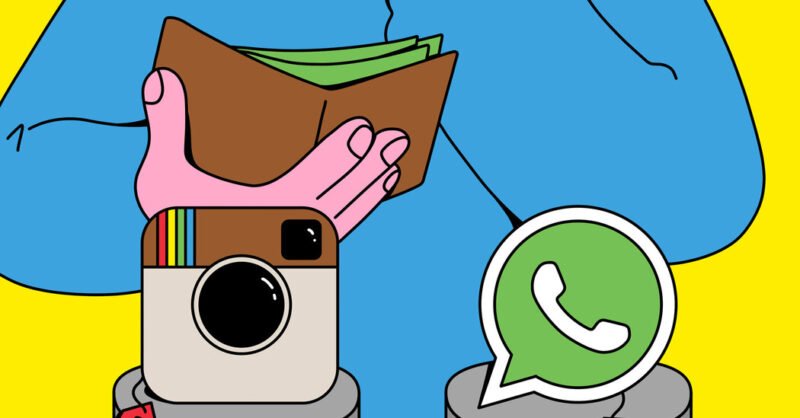Top Highlights
-
In 2012, Mark Zuckerberg faced criticism for acquiring Instagram for $1 billion and again for buying WhatsApp for $19 billion, as many viewed these apps as unproven and trivial at the time.
-
These acquisitions, now seen as pivotal moves in Silicon Valley, are central to an antitrust trial that questions whether Zuckerberg’s actions exemplify monopolistic behavior aimed at suppressing competition.
-
The unpredictable nature of tech innovation has made it difficult to assess the long-term outcomes of these acquisitions, with many former contenders now defunct while Instagram and WhatsApp thrive as integral parts of Meta’s business.
- The trial reflects a debate over what might have transpired in a different technological landscape had these deals not gone through, inviting speculation that can only be answered with hindsight.
Imagining a Different Tech Landscape
What if Mark Zuckerberg had not bought Instagram and WhatsApp? This question opens the door to countless possibilities. Facebook might have struggled without these acquisitions. Instead of dominating social media, it could have faded away amid increasing competition. At the time, observers dismissed Instagram as a mere photo-filtering app, while WhatsApp flew under the radar in the U.S. Even Zuckerberg himself faced skepticism. Critics called his $1 billion price tag for Instagram outrageous. They questioned the value of a platform that primarily showcased curated images.
However, with hindsight, we recognize the significance of these deals. Instagram became a powerful platform that influences global culture and communication. WhatsApp revolutionized messaging, linking billions of users worldwide. Had Zuckerberg lost the bid for Instagram, Twitter might have gained an edge in social media. Alternatively, Google could have integrated WhatsApp, creating a different online environment. Both apps played crucial roles in shaping how we connect and share today. Without them, the digital world might lack essential tools we often take for granted.
Theoretical Outcomes and Their Implications
Each hypothetical scenario presents intriguing implications. What if Instagram had continued to operate independently? Competitors might have emerged, potentially creating superior platforms. With Facebook’s absence as a dominant player, the tech landscape would differ significantly. Moreover, could another messaging app have risen to prominence instead of WhatsApp?
The antitrust trial surrounding Meta embodies these uncertainties. It forces us to question the nature of innovation and competition. If Zuckerberg had mismanaged the acquisitions, Facebook could have faced a steep decline. Industry dynamics, however, remain unpredictable. Companies can transition from obscurity to prominence overnight.
These discussions highlight the fluid nature of technology. The legacies of Instagram and WhatsApp demonstrate the radical transformations that strategic decisions can enable. They remind us that seemingly trivial choices can lead to monumental shifts in our digital lives. Such explorations encourage us to consider not just what technology is, but what it might have been, had the course of history taken a different turn.
Stay Ahead with the Latest Tech Trends
Dive deeper into the world of Cryptocurrency and its impact on global finance.
Discover archived knowledge and digital history on the Internet Archive.
TechV1

